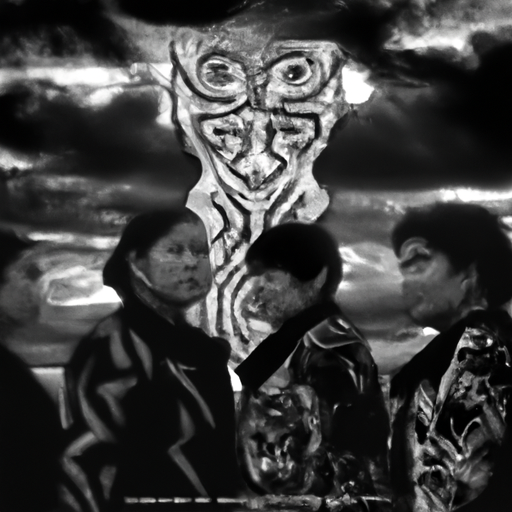The Canadian Opioid Crisis: A Closer Look
In this illuminating report from CBC News, an elaborative narrative emerges on how the daunting opioid crisis in Canada is triggering an unparalleled public health catastrophe. This crisis that has led to a surge in overdose deaths is a faceted problem with numerous faces including justice, health, and human rights. Even more disconcerting is how the crisis disproportionately impacts some of Canada’s most vulnerable populations. Today, we delve into the heart of Saskatoon where innovative responses to this crisis are being piloted.
Indigenous Grandmothers at the Frontlines
What’s riveting about the piece is how it spotlights the impact of the opioid crisis on Indigenous grandmothers or “kokums”; custodians of families and traditions, who are now on the frontline combating the fallout from the opioid crisis. The article details the harrowing struggles of these brave matriarchs, grappling with addiction issues among their grandchildren.
They have witnessed the deadly grip of opioids on their families – 14 grandchildren of the elders have died from overdoses. The deep pain associated with such loss has prompted them to take a stand against the crisis. Forming the Matriarchs on a Mission group, these grandmothers are engaging overlooked Indigenous communities, offering support, creating awareness, and advocating for improved resources and interventions.
The Devastating Effects of the Opioid Crisis
The opioid crisis has had significant societal impacts felt far beyond individual families. Some of these effects include:
- Critical overload of the healthcare system with rapid increase in hospitalization and emergency department visits from overdose patients.
- Increasing crime rates, particularly property crimes and violent crimes tied to drug use.
- Growing population of homeless individuals.
Efforts to Combat the Crisis
Despite the toll of the opioid crisis, the report shines a light on the varied efforts being implemented to address the issue. Naloxone, a drug that reverses opioid overdose, has become a crucial tool in the fight against the crisis. Training programs and distribution of naloxone kits are expanding, hopefully offering a lifeline when timely intervention is critical.
Cities across Canada have also been advocating for a class action lawsuit against pharmaceutical companies responsible for the mass distribution of opioids. This class action aims to hold them accountable for misleading marketing strategies and the corporate greed that contributed to the crisis.
A Continuous Battle
We must understand that the opioid crisis is a battle fought on multiple fronts. It requires comprehensive, inclusive, and carefully tailored solutions, considering the various populations it affects. The crisis highlights the wider systematic imbalances and injustices within Canadian society, necessitating better mental health support, improved health education, and enhanced social services.
Key takeaways
- The opioid crisis is a complex and multi-dimensional issue directly affecting vulnerable populations, including indigenous communities.
- Indigenous kokums are transforming their grief into action, initiating grassroots efforts in combating the opioid crisis in their community.
- The ripple effects of the opioid crisis – overwhelmed healthcare, escalating crime, and surges in homelessness – necessitate broad societal involvement and integrative solutions.
- The lawsuit initiated against opioid manufacturers and promoters marks a distinct milestone towards accountability and justice.
- Enhanced availability of naloxone and training on its use is a step towards reducing opioid overdose fatalities.
In summary, the opioid crisis has revealed the resilience and tenacity of those affected, forging heroes in the heart of the chaos. The grandmothers or ‘kokums’ exemplify the power of community and love in the face of adversity, offering a beacon of hope amidst an overwhelmingly grim narrative. They are a testament to human strength and the unwavering belief in the capacity for change, proving that we can rise to the challenge presented by the opioid crisis and transform despair into action.


